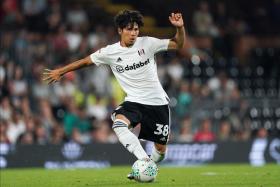Richard Buxton: Fifa and Uefa's expansion plans add to fixture pile-up
Fans can expect quantity, but the quality could be questionable
Co-existing at football's highest level once steered Uefa and Fifa away from a collision course.
Every four years, the World Cup illuminates and endears the beautiful game's captivated masses, while the Champions League remains a staple for its supporters the world over.
However, the governing bodies of European and global football now find themselves locked in a battle for outright superiority where the winner will not be their shared common interest.
Both parties want to wrestle control of the game's international calendar with radical plans for new summer tournaments.
From next year, Fifa's expanded format of the Club World Cup will see 24 teams vying in a tournament currently reserved only for the best sides from the six continents and the host's champion club.
Uefa, similarly, is planning to lend its endorsement to the International Champions Cup that will transform it from the current succession of glorified pre-season friendlies, regularly involving the elite clubs from Europe's top five leagues, into a legitimate competition.
Creating a stripped-back version of the Champions League may be seen as a solution to the looming threat of a proposed European Super League, yet it will create more problems than it solves.
The prospect of a continental breakaway continues to be rejected by Fifa as much as Uefa.
Gianni Infantino may hold office at the pinnacle of world football, but is still heavily aligned to the core principles from his previous role as Uefa's general secretary.
Tough sanctions have already been threatened against dissenters.
Players of any clubs involved in the potential move away from the Champions League's organised structure were warned that they will face automatic suspension from future participation at the World Cup.
Respect for authority, rather than individuals, is at the heart of Infantino's thinking.
But Fifa's self-promotion as being "for the good of the game" belies its own motives as much as Uefa. The European governing body is also eyeing an expansion to the Champions League from 2024, with more qualifiers among the proposals.
Adding further games to an already convoluted schedule is an act of sheer self-interest. Players are already struggling to cope with the increasing demands placed on them year- round for both club and country, before needlessly throwing additional games into the mix.
A host of stellar names, including Eden Hazard, Son Heung Min and Harry Kane, have all found themselves sidelined by injury, quite possibly as a result of that excessive burnout.
Son, for instance, played 78 games in 12 months, documented the website of FIFPro, the world players' union.
Often they are forced to return at less-than-peak conditions, which lead to even more watered-down performances.
For supporters, too, the pressure of travelling to additional tournaments has a greater impact than mere financial outlays.
In just seven months last year, Liverpool fans clocked up over 25,000km watching their team lift the Champions League, Uefa Super Cup and Fifa Club World Cup.
Earlier this week, Uefa president Aleksander Ceferin told its annual Congress that "football is not simply a business like any other".
He is right. No other business, let alone sport, treats its lifeblood with such contempt while simultaneously expecting their loyalty to be unstinting.
Ceferin's own organisation has caused many of the current scheduling problems with its roll-out of the Nations League and adding a second tier to the Europa League next season now set to follow.
Fifa and Uefa appear hell-bent in pursuing quantity over quality.
Carrying on down this destructive path will not help football, but ultimately break it beyond all repair.
Get The New Paper on your phone with the free TNP app. Download from the Apple App Store or Google Play Store now



